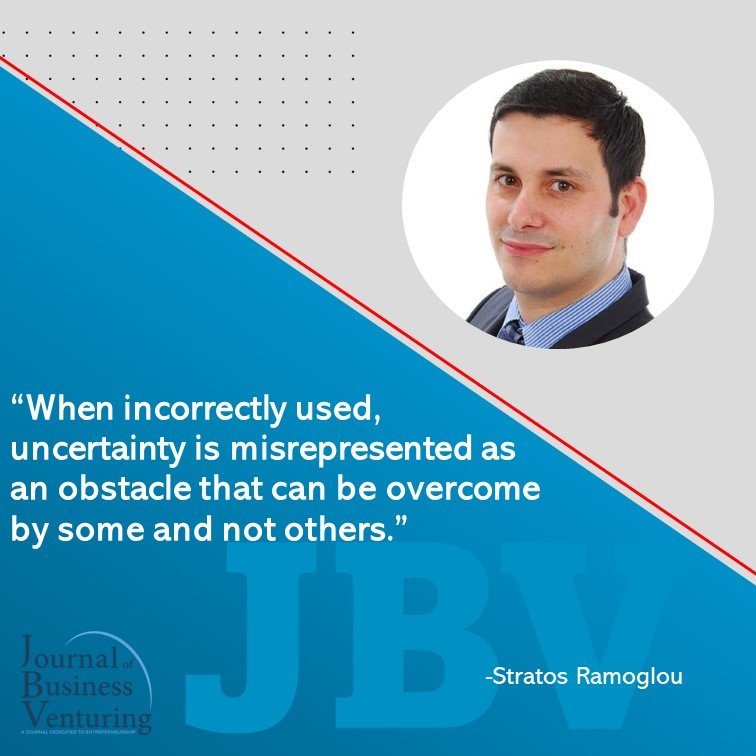Can opportunities be known in spite of the fact that the future is unknowable?
Research Paper Title:
“Knowable opportunities in an unknowable future? On the epistemological paradoxes of entrepreneurship theory”
Authors:
Background:
It is often assumed that opportunities can be known ex-ante in spite of the fact that the future is simultaneously acknowledged to be unknowable. This paper endeavors to resolve this epistemological paradox in a manner that facilitates a more meaningful treatment of the knowledge problems of entrepreneurship. To this end, the author draws from linguistic philosophy and undertakes three interrelated analytical steps at the conceptual foundations of entrepreneurship theory. First, the authors clarify subtle logical aspects underlying the meaningful use of the word “uncertainty” qua unknowability. When properly used, uncertainty reflects the epistemological assessment that enterprising actors may only believe – not know – that new ventures can succeed. When incorrectly used, uncertainty is misrepresented as an obstacle that can be overcome by some and not others. Second, the author explains how prevalent linguistic practices (“opportunity discovery”, “opportunity recognition”) lie at the root of epistemological tensions in opportunity theory. They act as a distorting mirror that trivializes the unknowability of the future and nourishes impressions of mental agencies allowing entrepreneurs to know the unknowable. Third, the author urges a more nuanced understanding of the knowledge problems of entrepreneurship. On the one hand, we submit that opportunities are ineliminably unknowable. On the other hand, however, we argue that there exist knowable Opportunity-Ingredients (OIs) whose knowability varies across contexts. These analytical developments further contribute to the ongoing “opportunity wars”, strengthen the epistemological foundations of opportunity-actualization, improve construct clarity, and reveal new possibilities for research.
Conclusion:
Further research is required to elaborate the structure of such epistemic intuitions and drow from philosophies of knowledge in order to ground different conceptions of uncertainty. By doing this, we may be more reflective of the reasons why any given opportunity ingredient should be classified as unknowable and, if knowable, how this knowledge may be acquired.
Researchers could also study the nature of interplay between External enablers (EEs) and opportunity Ingredients (OIs) by examining the manner in which EEs create OIs by giving rise to enabling conditions or eradicating the disabling conditions of venture success.



